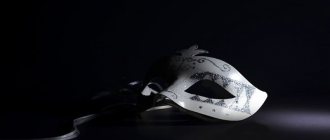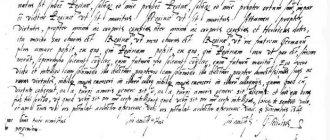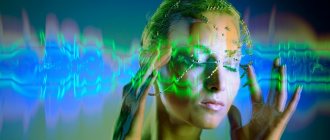An ancient wisdom says: “Genius is one percent patience and ninety-nine percent perspiration.” A man of genius, possessing talent and amazing mental abilities, is rare. Insight, as the highest degree of genius, allowing one to make unique discoveries, is not the result of learning.
Recognized genius - Albert Einstein
In Efremova's dictionary
Accent: genius
- m. outdated The highest degree of creative talent; manifestation of such talent.
- Outstanding abilities, talent, talent in a certain field of activity.
- Someone who has the highest degree of creative talent.
- Spirit, patron of a person, clan, area.
- The spirit is the patron and inspirer of creativity.
genius
(lat.
genius)
the highest degree of creative talent; a person who has such talent.
…………
☼ philosophical-aesthetic a concept formed in modern times (16th-18th centuries) on the basis of the ancient concept of “genius” - “spirit” (Greek, lit. “endowing”; lat. genius) as given to a person as a deity expressing his personality and destiny , deities double, guardian, as well as the word ingenio, which has the same root as genius (included in European rhetorical theory), meaning innate (properly received at birth from the spirit) abilities, talents, ingenuity, mental acuity. According to the teachings of Diotima in Plato’s “Symposium” (202 e), spirits-“daimons” are “the average between god and mortal” and have the power “to be interpreters and transmitters of humans. deeds to the gods, and divine deeds to people, requests and sacrifices to some, orders and rewards for sacrifices to others,” thanks to which the whole existence is tied together. Plato emphasizes the connection with the “daimon” of creativity. functions - everything related to “sacrifices, sacraments, spells, divination, sorcery.” In the Phaedrus (242 pp.), Socrates talks about his “daimonion”, which gives him signs. The actions of the “daimon” are reflected primarily in divination, and the ability of divination is also coupled with the soul so that deities are supplied from outside. the signs turn out to be simultaneous. and "internal" voice" of the individual. Thus, ideas about “daimon” and resp. Roman “genius” (themselves extremely varied in popular beliefs and literary evidence over the centuries) in his philosophy. interpretation, as their fundamentals. implications suggest: creative. the nature of G. as a force of inspiration and insight; the implementation of the interconnection of the whole, ensuring its existence; not just the attachment of G. to the individual, but the connection of G. with the “soul” as internal. the beginning of man, personality. All these points are preserved and reflected in the new European. concept of G., which in other respects breaks with tradition. All of them were developed only in the growth of individualism in modern Europe. culture, through the Renaissance idea of the deification of man and the idea of the artist as a “second god”.
In the 18th century the process of interiorization of G. is taking place as a deity guiding man, a force coming from outside - now G. begins to be understood as an internal, immanent creative soul. ability. A mediator between humanistic heritage and The philosophy of the turn of the 18th and 19th centuries, which played a decisive role in the rethinking of Georgy, was Shaftesbury, who wrote: “The poet is already the second Creator, a true Prometheus walking under Jupiter. Like this supreme artist, or the world plastic. nature, he creates the form of the whole, commensurate and proportional in itself...” (“Soliloquy”, I, III). In the 18th century (especially in the so-called “brilliant” era of “Storm and Drang” of the 1770s in Germany), due to the strengthening of anti-rhetoric. trends in creativity and aesthetic theory, an idea of the individual arises. and original (primordial) G., which creates a rule and then follows it, i.e. autocratically creates a special, original artist. world. Such a representation, losing its polemic. extreme goes into him. classic philosophy and German neo-humanism at the turn of the 18th and 19th centuries, G. is balanced with nature, and “interiorized” G. never breaks ties with G. as traditions. representation-mythologem. G.'s activity is deeply intertwined with the activity of nature; G. the artist plastically sculpts being like God or nature; Wed at K.F. Moritz (On plastic imitation of beauty, 1788): “Plastic. a genius must, as far as possible, grasp all the sleeping proportions of the great harmony within him, the scope of which is wider than his individuality” - Moritz K. Ph. Schriften zur Asthetik und Poetik. Tub., 1962; 84). Kant defined talent as “a talent (natural gift), which gives the rule to art,” or, otherwise, as “innate inclinations of the soul,” through which nature gives the rule to art (Critique of the Power of Judgment). That. between external and internal. the origins of G., genius, balance is established. Resp. from Schelling in “Philosophy of Art”: “... the eternal concept of man in God as immediate. the reason for his (human) production (creativity) is what is called genius, it is, as it were, genius, the divine dwelling in man.” Kant’s concept of humanity, which summarizes the long process of a new understanding of creativity, includes both the “originality” of creativity and its unconsciousness and unreflectivity (hence Schiller’s connection of creativity with “naive”, i.e., poetry that does not reflect itself), and his impersonality (nature itself speaks in the artist). Kant refers only to “fine art,” which is the only thing that does not obey a known rule.
In the 19th century a tradition-neutral idea of genius is created, of genius as the highest creative force. abilities, in isolation from internal. forms of the word “G.”, from G. as a mythologeme, from the tradition of its rethinking. As a result of this, G. could become commonplace, optional. representation inherent in mass aesthetics. consciousness, but at the same time and present. problem of philosophy and psychology of creativity. Here G. appears as essentially a new concept, developed in the depths of the traditional one and containing a certain final meaning of it. Jean-Paul, distinguishing talent from talent (Preparatory School of Aesthetics), actually uses a new concept. In exactly the same way, Hegel in “Aesthetics” understands G. as self-conscious. creativity, without at all connecting G. with tradition. a mythologem of an inspiring deity, or a natural principle, and removing any “restrictions” on the activities of G., who can manifest himself in any field, not only in art. In the 19th century the idea of G. is partly connected with the cult of the “hero” as a superhuman. personality (already in Carlyle, Nietzsche), contrasted with non-creative. and hostile to the artist, true art, the masses, the “crowd.” Such a cult of the G. “hero” becomes an indispensable moment of the average bourgeois, brought to the point of absurdity. consciousness. At the same time, the era of comprehensive study of the phenomenon of G. begins. Since the new concept of G. differs from the previous one primarily in the immanence of G. of the individual, the study of psychophysiol. G.'s substrate led to irrationalism. currents of science and philosophy to ideas about deviating from the norm, pathological. the nature of G. (which corresponds, however, to the traditional idea of “possession” by the deity, the proximity of “inspiration” and madness). It is more natural, however, to consider G. a phenomenon that does not go beyond the normal: a genius person is endowed with a rare and each time individually structured set of properties and abilities that predispose the person to creativity (usually in a variety of fields of activity), but usually allow him to make decisions. choice in favor of one, main. type of activity. It is obvious that genius is predetermined not only by the outstanding strength (thus going beyond the ordinary) of abilities, but, perhaps even more so, by the unusual dynamics of their combination in the individual. At the same time, various properties, drives, abilities must be in this person in a truly rare state, in which their obvious disharmony, leading to equilibrium, harmonious. condition, and imbalance in the k.-l. the level of personality, in any case, is compensated at the highest. creative her level - where she acts as the creator of masterpieces of creativity. The creativity of a brilliantly gifted person is tactful. resolution of the contradictions inherent in his personality. The absence of a completely unusual correlation of properties and abilities would lead to the fact that the more or less uniform development of a variety of abilities would not allow one to stand out as one main one, a concentration on which is completely inevitable for a genius-gifted person (versatile talent in this case internally certainly affects the results of genius activity - as a special wealth, the versatility of what is created). The presence of only one clearly expressed ability would not allow, on the contrary, the development of final harmony. The often observed “strangeness”, imbalance, everyday disorder, unsociability of a genius personality comes from its concentration on creativity, where the final (exceeding the usual level) harmonization of the strengths and abilities of the individual occurs, while at the everyday (“everyday”) level such a personality can appear as “uncompensated”, disharmonious. Properties and abilities of G., which manifest themselves, as a rule, on a healthy psychophysiol. basis, can be very rare - this, for example, may be the ability for an intense, directly fresh perception of art. phenomena without attenuation of the original. impressions, but, on the contrary, with their deepening; the ability to intuitively perceive and realize, to comprehend, as a single whole, huge masses of artistically organized material (Mozart spoke of his ability to capture an entire part of a symphony with a single, instant glance); ability for unusual associations phenomena, their sides, seemingly distant, leading to a non-trivial artistic. or scientific thinking, to discoveries in science, technology, art, etc.; the ability to instantly become aware of one's creativity. activity without interfering with its spontaneity. The manifestation of G.'s abilities is individual and unique every time. It is indicative and goes back to a deep tradition to compare G.’s activities with lightning: “Int. the idea and implementation of a brilliant fantasy simultaneously appears to us like a lightning strike in their instantaneous interpenetration and the most elusive vitality" (Hegel, see Aesthetics. T. 3. M., 1971. P. 341). Thanks to such qualities, a genius-gifted person in art, science, philosophy, etc. begins to express his history. An era with a special depth, maximally accessible to man, without being connected by many secondary ones, is insignificant. its moments, circumstances; G.'s attitude towards his time is always paradoxical, because G. sees the essence of what is happening deeper, wider, more multifaceted than his contemporaries.
Lit.
: Goncharenko N.V. Genius in art and science. M., 1991; Zilsel E. Die Entstehung des Geniebegriffs. Tub., 1926; Nowak H. Zur Entwicklungsgeschichte des Begriffs Daimon: Diss. Bonn, 1960; Schmidt-Dengler W. Genius: zur Wirkungsgeschichte antiker Mythologeme in der Goethezeit. Munch., 1978; Schmidt J. Die Geschichte des Genie-Gedankens in der deutschen Literatur, Philosophie und Politik 1750-1945. Bd. 1-2. Darmstadt, 1988; Zilsel E. Die Geniereligion. Ein kritischer Versuch iiber das moderne Personlichkeitsideal, mit einer historischen Begrundung. Fr./M., 1990.
AB Mikhailov.
Cultural studies of the twentieth century. Encyclopedia. M.1996
In the dictionary D.N. Ushakova
GENIUS, genius, husband. (·lat. genius) (·book). 1. Highest creative ability in scientific or artistic activity. Scientific genius of Lenin. 2. A person who has a similar ability. Darwin was a genius. 3. In Roman mythology - a lower deity, the patron spirit of a person, clan, or locality. | In fantasy literature - a supernatural creature, the personification of good, evil, etc. | trans. (with adj. good, evil). About a person who has something beneficial or a bad influence on someone, bringing *****
The meaning of the word Genius according to the Brockhaus and Efron dictionary:
Genius (generally see Genius) - lat. genius (from genus - genus), originally - the spirit of a deceased ancestor, to whom religious veneration was given. Modern usage retains some connection with this original meaning. G. is now called a person: 1) who lives an increased, potentized inner life and 2) whose activity is not only personal, but general generic
meaning (for
the people
or for the entire
race
).
Genius as the highest degree of giftedness, compared with talent as the lowest, cannot be precisely defined. the distinction itself is arbitrary, attempts at strict differentiation are arbitrary and their application is controversial. In different languages, the word G. is used to varying degrees and with different connotations. The French are most lavish on it, for whom, in addition to a special personal property, it also denotes the spirit of complex and collective phenomena (for example, le gé.nie de la langue, le gé.nie du Christianisme). The English use this word in approximately the same way, but less generously. Germans tend to limit it to the area of artistic creativity and speculation. The view of Schopenhauer (see this name) deserves special attention. among the Germans, as well as among the Russians, talent is more differentiated from talent than among the French and English. Vl. WITH.
In the dictionary Dictionary of foreign words
I, m.
1. Highest creativity. Poetic city of Pushkin.||Wed. TALENT" title='TALENT, TALENT is, what is TALENT, TALENT interpretation'>TALENT I.
2. shower A person who has this ability. He doesn't look like a genius.||Cf. TALENT" title='TALENT, TALENT is, what is TALENT, TALENT interpretation'>TALENT I.
3. In ancient Roman mythology: the spirit is the patron of man, and later generally the personification of good, evil, etc. Good Mr. (one who helps someone, has a beneficial influence on someone). “The genius of pure beauty” (Pushkin).
Share the meaning of the word:
Definition of the word "Genius" according to TSB:
Genius (lat. genius) 1) in ancient Roman religion and mythology, a good spirit, a supernatural being that protects a person throughout his life. The birthday of a Roman was considered the holiday of his G., to which sacrifices were made, libations and incense were made. The Romans also revered G. - the patrons of the family, community, city and the entire Roman people. The cult of G. in ancient Rome was a type of the cult of personal patron spirits, widespread among many peoples during the period of disintegration of communal-tribal relations. 2) The highest degree of creative talent, as well as a person who has such talent. see Genius.
Notes
- Genius // Dictionary of Antiquity
- demon // Etymological Dictionary of the Russian Language = Russisches etymologisches Wörterbuch: in 4 volumes / author.-comp. M. Vasmer; lane with him. and additional member-corr. USSR Academy of Sciences O. N. Trubachev, ed. and with a preface. prof. B. A. Larina [t. I]. — Ed. 2nd, erased - M.: Progress, 1986-1987.
- Demon / Ivanov V. Sun. // Myths of the peoples of the world: Encycl. in 2 volumes / ch. ed. S. A. Tokarev. — 2nd ed. - M.: Soviet Encyclopedia, 1987-1988.
- Possibly Zadkiel.
Signs of genius
- Powerful intuition . As a rule, a genius does not need to have the full range of knowledge in the desired field. What he lacks in information, he more than makes up for with actions on a whim.
- Developed imagination. It is this that serves as a guide for genius, giving the opportunity to create without relying on existing standards.
- Uniqueness . As a rule, geniuses do not develop what they already have, but create something fundamentally new, different from everything that came before.
- Perseverance, attentiveness, hard work. Without these qualities it is difficult to achieve anything. And a genius, as we have already said, must definitely leave his mark on history.
- Maximum passion. It doesn’t matter what field we are talking about, science or art - when a genius creates, everything else ceases to exist for him.
- A high self-evaluation . Geniuses are usually absolutely self-sufficient individuals. They believe in themselves and their business. Such an attitude is simply necessary so that a person can give all of himself to what he does.
Genius has one more feature. A person’s ordinary abilities can be developed into giftedness, and then into talent. But not genius - this is a quality that either exists initially or does not exist at all. Usually a genius is visible in early childhood, while talent can manifest itself at any age, even old age .
Scientists will probably struggle for a very long time to figure out who a genius is, thanks to what factors he is born, and why he is so rare.
One thing is obvious: no matter what area genius manifests itself, it will always be able to declare itself and will certainly leave a deep mark in the history of mankind.
Geniuses in the occult and magic
In 1898, S. L. MacGregor Mathers translated from French into English one unusual treatise entitled “The Book of the Sacred Magic of Abramelin the Magician, which Abraham the Jew transmitted to his son Lamech. Grimoire of the fifteenth century." The manuscript of this book, written in Hebrew and representing a guide to practical magic, was kept in the Paris Arsenal Library (Bibliothèque de l'Arsenal) and was translated into French at the end of the 17th century.
In this grimoire, the magician Abramelin proclaims that each person is connected with a special spiritual entity, which is called the Holy Guardian Angel, without entering into a spiritual union with which it is impossible for a person to truly advance along the path of spiritual development or command the inhabitants of the spheres of lower nature.
The only Highest Ritual is the achievement of Knowledge and Conversation with the Sacred Guardian Angel. At the same time, the whole person rises and stretches into a vertical straight line. Any deviation from this straight line threatens to turn into black magic. Any other operation is black magic.
— A. Crowley, “Magic in Theory and Practice”
In addition to affirming the existence of the highest patron of man, The Book of Sacred Magic of Abramelin the Magician contains a description of the detailed procedure for summoning a personal genius, as well as the system of magic transmitted by the personal genius to Abramelin himself. Thus, according to the “Book of Sacred Magic of Abramelin the Magician,” having established an interview with an angel, the magician receives instructions for summoning the “Four Great Princes of Evil” and subjugates them, binding them with an oath of allegiance. In the following days, the magician summons and subjugates other spirits of evil until the entire population of the hellish kingdoms swears devotion and begins to obey the magician, which means the solemn victory of man over the lower nature, personified in the images of demons.
This procedure is very reminiscent of the events described in another magical grimoire, known as the Testament of Solomon, in which the legendary king, with the help of God's angels, subjugated all the evil demons and forced them to participate in the construction of God's Temple, which can be understood both literally and allegorically.
They followed what the devils read in the kingdom of Suleiman (Solomon). Suleiman (Solomon) was not an unbeliever. The devils were unbelievers, and they taught people witchcraft, as well as what was revealed to two angels in Babylon - Harut and Marut. But they did not teach anyone without saying: “Verily, we are a temptation, so do not become an unbeliever.” They learned from them how to separate a husband from his wife, but they could not harm anyone without the permission of Allah. They were taught what harmed them and did not benefit them. They knew that whoever buys it will have no share in the Hereafter. What is bad is what they bought with their souls! If only they knew!
The story also contains references to the contacts of magicians with geniuses who teach and mentor people. Thus, in “A Critical History of the Spanish Inquisition,” Juan Antonio Llorente tells the story of the 16th-century learned doctor, Eugenio Toralbao, to whom the angel Zekiel appeared.[4] The angel appeared “in the guise of a white and blond youth, dressed in a flesh-colored dress and black outerwear” and taught the doctor goodness and secret sciences. Eugenio Toralbao naively believed that since Zekiel “never said anything against the Christian religion,” the Inquisition would have no claims against him, and therefore did not hide his alliance with the genius. However, only the humiliated renunciation of the angel and the patronage of influential persons provided the scientist with a relatively mild sentence for witchcraft - 4 years in prison.
Modern occultists consider the story of the English magician John Dee to be a more successful example of such contact, who at the end of the 16th century, with the help of his assistant Edward Kelly, made a successful attempt to establish contact with angels. Its result was the creation, with the assistance of the Archangel Uriel, of a system of Enochian magic, which is recognized by most modern magicians as the most powerful.
Achieving an interview with the Holy Guardian Angel is considered one of the most important tasks of the Thelemite magician.
Aleister Crowley, in a letter to Frater R., reveals the names by which the Holy Guardian Angel is known to various magical and religious traditions:
Theosophists call him the Supreme Self, the Silent Observer or the Great Master. In the Order of the Golden Dawn he is called a Genius. Gnostics call it Logos. The Egyptians say Asar Un-nefer. Zoroaster speaks of the union of all these symbols in the form of the Lion - see the Chaldean Oracles. Anna Kingsford calls him Adonai (Clad in the Sun). The Buddhists call him Adi-Buddha - (says H.P.B.) The Bhagavad-Gita calls him Vishnu (Chapter XI). The I Ching calls him "Great Man". In Kabbalah he is called Yechida.
The main signs of a genius
If a person is called a genius, what does this mean is already clear, but how can he be identified among other people?
For your information. According to statistics, there is one recognized genius for every 50 million people. For example, geneticists say that only one potential genius can be born per hundred thousand newborns.
Despite the small percentage of geniuses in society, such a person can be identified by the following parameters:
- a special state of mind combined with innate abilities;
- using intuition;
- perseverance and self-confidence;
- innovative thinking;
- understanding of vocation and its productive implementation in a certain area.
It has been noticed that some of these amazing people focus on one thing in childhood. They may fall behind in other subjects at school or even fail the school curriculum.
Interesting. Albert Einstein was considered a retarded child and did not do well in elementary school. Maxim Gorky did not write school essays at all and completed only two classes.
Innate signs of genius are not enough; they must be identified and developed.
Geniuses in Greek mythology
Main articles: Daimonium
,
demon
In Greek mythology, the analogue of geniuses are some daimons (demons[2])[3]. The good genius was called agathodaimon
or
agathodaimon
(from the Greek αγαθο, good, good), evil -
cacodemon
(from the Greek κακό, evil).
Socrates described his personal daimon-genius as an inner voice that always warned the philosopher as soon as he wanted to commit a wrong act. In Phaedo, 107-108, Socrates explains that a person’s daimonia, which took care of the soul during life, helps the soul leave the world of the living and descend to Hades, which makes daimonia similar to the description of the angel Azrael.
In the dialogue "Epinomis" Plato, a student of Socrates, says that the daimones “belonging, however, to a race that can learn quickly and have a good memory, they read all our thoughts and treat the good and noble with amazing mercy, but they have very evil thoughts perceived with extreme disgust." In the dialogue "The Republic" Plato says that the misfortunes of humanity are explained by "the lack of attention on the part of the daimon who raised us, guided us ... and became weak and helpless." In Timaeus 41, Plato cites a creation myth in which the demiurge addresses the first gods and orders the creation of a tribe of beings that would be “the guiding principle for those who want to follow justice and the gods.”
Literature
- Geniuses // Encyclopedic Dictionary of Brockhaus and Efron: in 86 volumes (82 volumes and 4 additional ones). - St. Petersburg, 1890-1907.
- Guili R. E.
Encyclopedia of Angels. - M.: Veche, 2008. - 416 p.: ill. — ISBN 978-5-9533-1941-6 - Fosse S.
Assyrian magic. Per. from French V. L. Sanina; lane from Akkadian and Sumerian V.V. Emelyanova. - St. Petersburg: Publishing Group "Eurasia", 2001. - 336 p. — ISBN 5-8071-0082-4 - Genius loci // Latin-Russian and Russian-Latin dictionary of catchwords and expressions
Is it possible to develop genius?
If genius is the highest degree of talent and inspiration, then you need to know what all the steps of this ladder are called. It consists of the following items:
- inclinations – features of the human nervous system, on the basis of which various personality abilities are formed;
- abilities - psychological qualities that allow an individual to easily acquire skills, knowledge and abilities in various fields;
- giftedness is a combination of different developed abilities;
- talent - outstanding abilities that are manifested and polished with the acquisition of experience and subsequently form certain skills;
- genius is the highest form of personality functioning intellectually or creatively.
Only endless hard work put into completing all these levels leads to the final result.
Ability Levels
How to raise a genius from a child
Knowing what genius means, you can, with patience, carefully observe the child in order to initially identify the makings of genius.
Important! A genius, the definition of which is already clear, can grow out of a child. He will not be the one his parents want him to be, but the one inherent in nature.
In simple terms, adults are required to follow a certain methodology, namely:
- initially determine what type of thinking the baby belongs to and identify his abilities;
- do not interfere with the little person’s desire for independent development and refrain from imposing your opinions and ideas;
- support and assist in every possible way the development of charisma and leadership abilities; they indicate high self-esteem and awareness of one’s strengths;
- helping the child, developing self-confidence is a fundamental feeling for the manifestation of talent;
- to form creative thinking and perseverance in achieving goals;
- give the child freedom of choice, be objective and instill the ability not to dwell on the successes achieved.
Carefully. You cannot direct the child’s activities where the parents want. It is important to allow him to choose his own path and profession.
Future genius
Unfulfilled professional dreams of parents, fear of deviating from generally accepted norms of behavior and the task of social adaptation are just a few of the obstacles to the development of a brilliant personality. To become a genius, a person must think and live outside the box. Abnormality, as the public interprets it, is one of the basic signs of genius.
Types of genius
Idealist - what kind of person is this?
Who is a genius? Is it clear what are the types of this unique condition? The following forms of its manifestation are distinguished:
- emotional;
- creative;
- scientific;
- sports;
- practical;
- household;
- entrepreneurial.
Attention! Separately, two divisions can be distinguished according to the method of implementation. The first is when a person, while remaining ready for something new, can easily switch from one vector of searching for discoveries to another. The second is when a genius works and makes inventions in a narrow way until the end of his life.
Genius and a brilliant person
A genius is a person who has a number of distinctive qualities. These individual traits include:
- intuition - the ability to comprehend the truth without any inferential processes;
- fantasy – the power of imagination;
- creativity is an activity aimed at creating something completely new.
Important! A genius, possessing all the knowledge of the cultural heritage of his ancestors, is not afraid to step over old norms and open unknown horizons in his field of creation.
Genius is the greatest degree of personal talent that a person realizes in his work activity.
Concept in psychology
If society defines genius as a spark of God, then psychoanalysts consider it the fruit of a defense mechanism of the psyche - sublimation. When such protection, which is responsible for relieving internal stress, is triggered, the overvoltage energy is directed toward achieving social goals. According to psychologists, a genius person is capable of insight.
Choleric - what kind of person is this?
By the way. Insight is a breakthrough on an intuitive level when solving a given intellectual problem.
From a psychological point of view, the state of genius is nothing more than a deviation from the norm. It has a genetic predisposition and sometimes borders on madness. Such people may have low emotional intelligence, which contributes to the development of bipolar affective disorder and schizophrenia. In this case, it is the disease that helps create brilliant masterpieces.
Noticed. Geniuses are “people not of this world” and are often not adapted to ordinary life. They are so passionate about what they do that they live in the gestalt moment (“here and now”). Such individuals are helpless in everyday situations and sometimes cannot find a common language with other people.
Genius and madness











